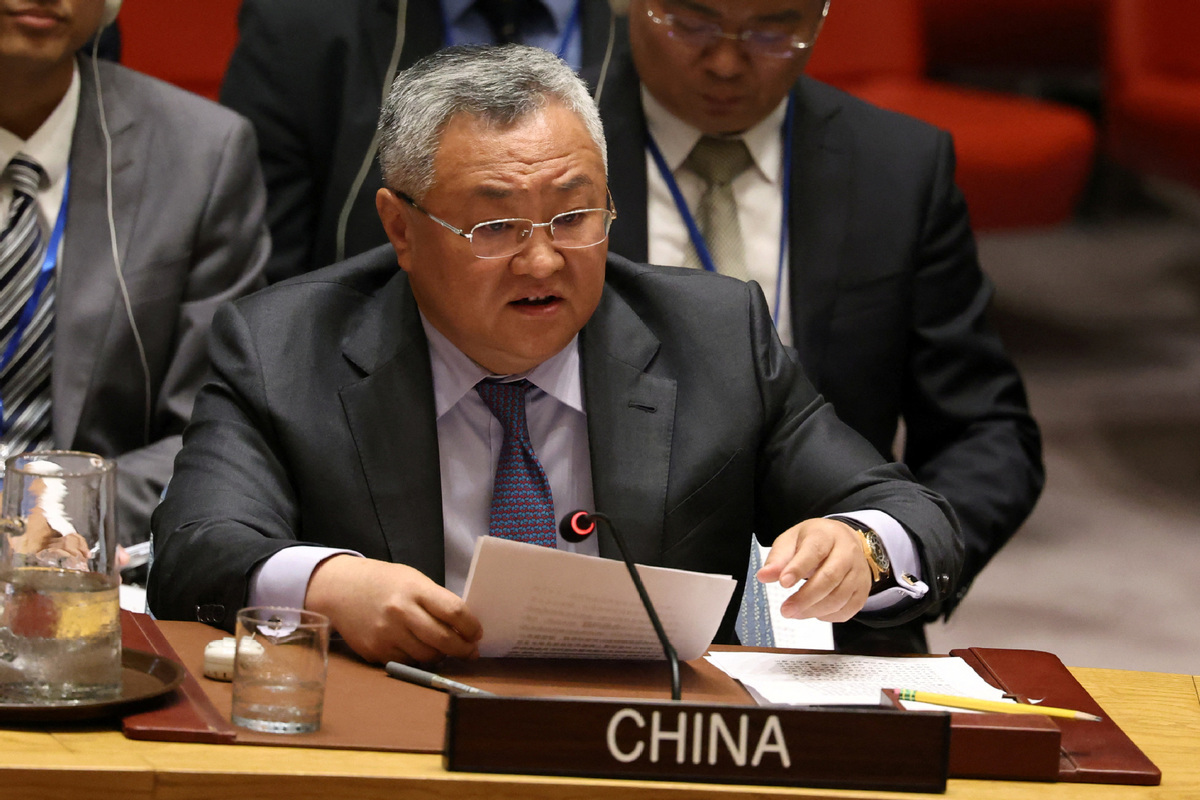Dialogues required not spurious 'preemptive' spin


It remains unclear whether Iran's nuclear facilities were destroyed by the United States' "Operation Midnight Hammer" earlier this month, as the US administration claims.
But what is clear is that the original political efforts to resolve the Iran nuclear issue have been halted due to the unilateral military actions of the US against the Islamic republic.
In other words, the current Middle East crisis, triggered by Hamas' attacks on Oct 7, 2023, has not only derailed the resolution of the Palestine issue, but also substantially increased the risks of nuclear proliferation in the region and beyond due to the external forces' interference for their own narrow ends.
The irony is although Israel and the US claim their operation in the Middle East is for the common good of the region and the people, they have not brought peace, unity or prosperity to the region, but conflict, division and a humanitarian crisis.
So instead of bragging about the "ceasefires" that it brokered between Iran and Israel and Israel and Hamas — both of which exist only in name — as its contributions to Middle East peace, the US administration should think about the real repercussions its unilateral attacks on Iran's nuclear facilities and its de facto unconditional support to Israel have actually brought about.
Both Israel and the US have been justifying their strikes on Iran as acts of preventive self-defense.
But Iran has been fulfilling its nuclear nonproliferation obligations and implementing relevant agreements. Tehran has repeatedly stressed that it does not seek to develop nuclear weapons, and has conducted multiple rounds of professional and pragmatic negotiations with the US in a constructive manner, and has never given up diplomatic efforts to convince the US that its nuclear program is solely for civilian purposes.
It is a pity that the US and Israel have deliberately ignored Iran's cooperation with the international community, including the International Atomic Energy Agency, and forcibly pushed the IAEA board of directors to adopt a resolution without full consultation, which has damaged the atmosphere for dialogue and intensified contradictions and confrontation.
The foundational goals established by the Joint Comprehensive Plan of Action (JCPOA) and United Nations Security Council Resolution 2231, which approved the agreement, remain valid in the next political settlement process of the Iranian nuclear issue.
Iran should continue to abide by its commitment not to develop nuclear weapons. And all parties should fully respect Iran's right to the peaceful use of nuclear energy as a party to the nuclear nonproliferation treaty.
The proper resolution of the Iranian nuclear issue is related to the authority and effectiveness of the international nonproliferation system and is crucial to peace and stability in the Middle East.
China supports all efforts to restart the negotiations to resolve the Iranian nuclear issue. As China's permanent representative to the United Nations Fu Cong urged, the UN Security Council should play a constructive role, assist the relevant parties to build trust, bridge differences, and create favorable conditions for restarting negotiations.
Relevant countries should abandon the practice of threatening to activate the "snapback sanctions" mechanism at will, otherwise they will only intensify the tensions and confrontation.
Despite the "ceasefire" that was agreed last week, Israel and Iran have still occasionally exchanged fire. It is evident their mutual hostility has only aggravated these weeks, while Israel keeps up its attacks in Gaza and weaponization of humanitarian aid in the Palestinian enclave.
China will continue to uphold an objective and fair position, strengthen communication and coordination with all parties, seek to pool efforts, and uphold justice, so as to play a constructive role in promoting the political settlement of the Iran nuclear issue and establishing peace in the Middle East.
































